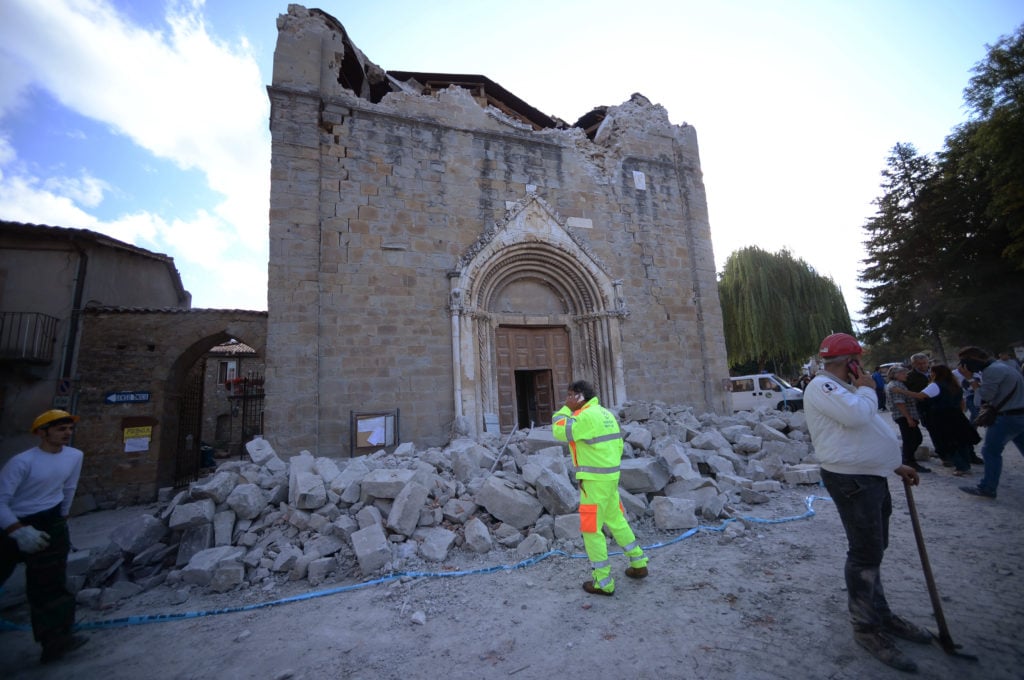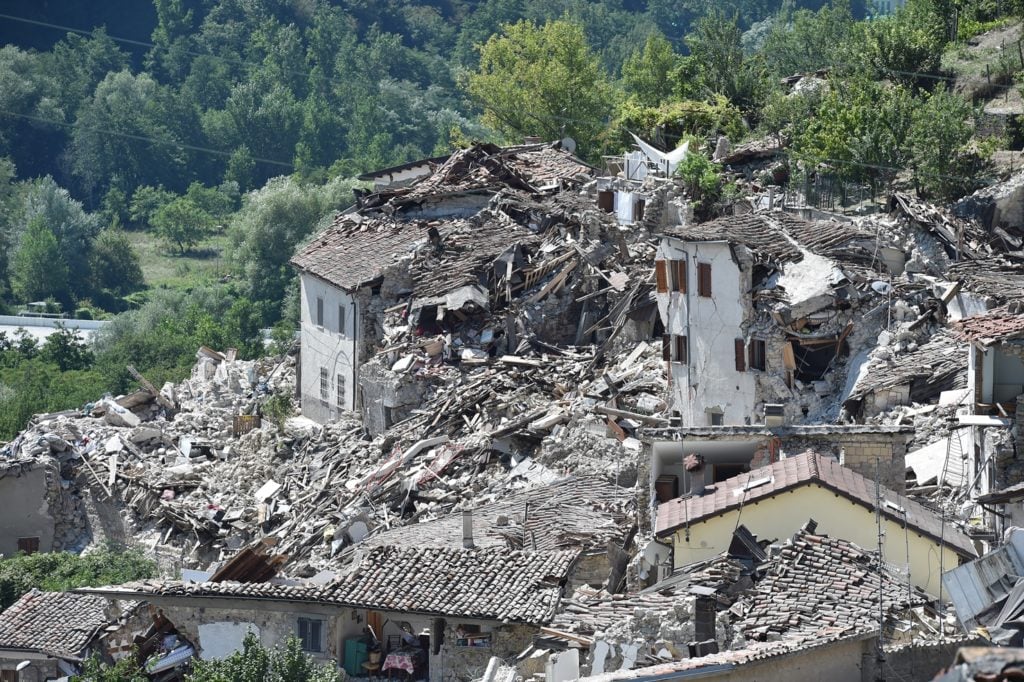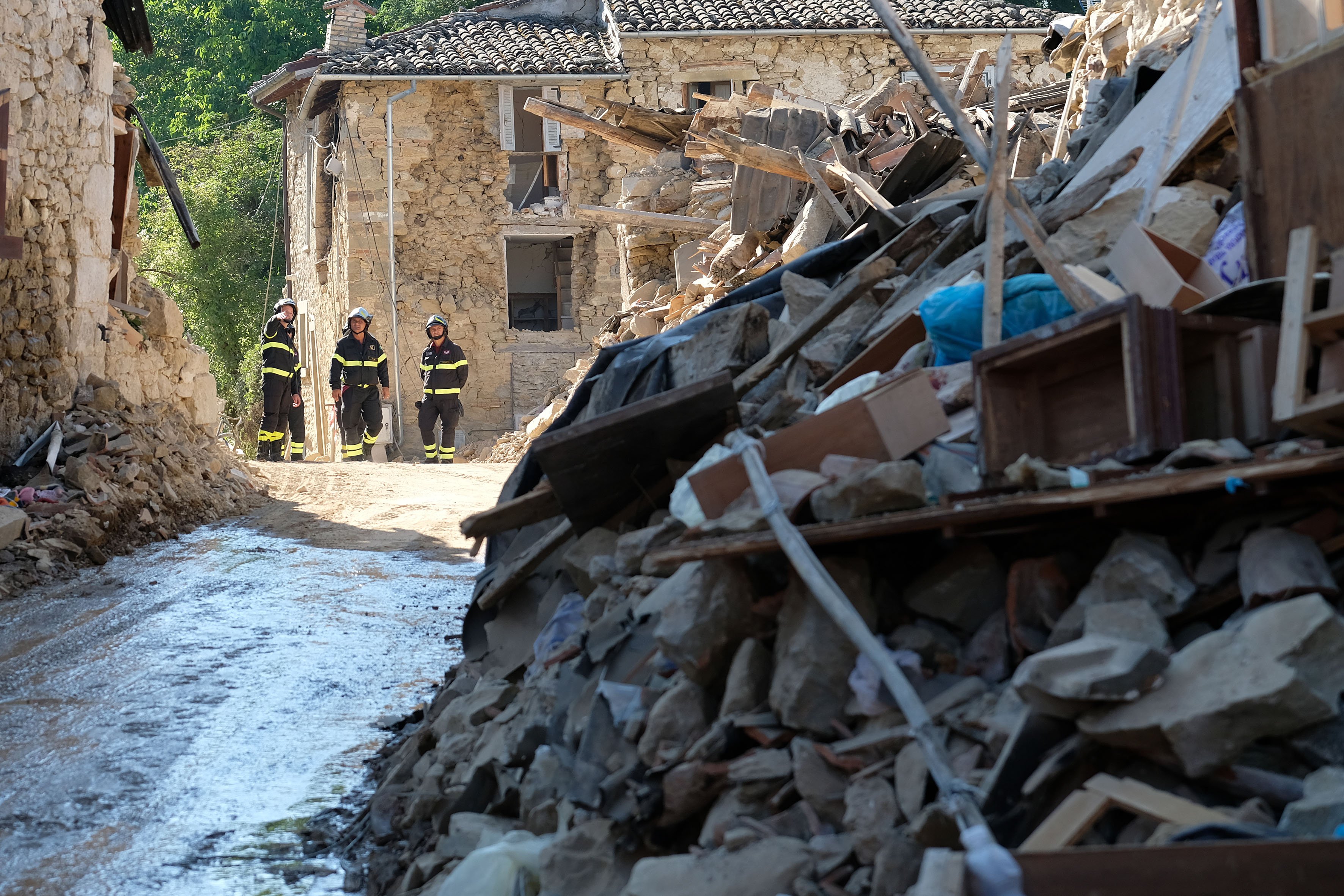Art World
Italian State Museums to Donate Ticket Sales to Earthquake Relief
Italy has declared a state of emergency in the region.

Italy has declared a state of emergency in the region.

Naomi Rea

The Italian Minister of Culture, Dario Franceschini, has announced that state museums and archaeological sites across Italy will be donating the proceeds of all ticket sales on Sunday 28 August to help rescue efforts in the regions in central Italy affected by Wednesday’s earthquake.
In a press conference yesterday, the minister urged Italians to go to museums on Sunday in “solidarity” with the affected population, reports La Repubblica.
The 6.2 magnitude earthquake that struck in the early hours of Wednesday morning has thus far claimed 267 lives, with hundreds injured and has devastated the towns of Amatrice, Accumoli, and Arquata del Tronto. This morning, after Amatrice was hit by 4.7-magnitude aftershock, Italy has declared a state of emergency in the region, the Guardian reports.
Rescue efforts in the region are ongoing, but it is not just lives that have been claimed by the disaster. Several important sites of cultural heritage, including Roman ruins, the 15th century church of St Augustine, the 13th century Basilica di San Francisco, and approximately 3,000 works of art are thought to have been damaged.

Rubble surrounds damaged buildings on August 25, 2016 in Pescara del Tronto, Italy. Photo Giuseppe Bellini/Getty Images.
“There are 293 immovable properties of cultural value collapsed or badly damaged in the radius of 20 kilometers from the epicenter of the earthquake to Lazio, Marche, Umbria, and Abruzzo,” Franceschini said.
Antonia Pasqua Recchia, Secretary General of the Italian Ministry for Heritage and Cultural Activities, however added that the number of damaged cultural heritage was likely to increase “because the earthquake action expands along the slopes and not in a geometric circle around the epicenter.”
“Fifty of these sites have already been subject to a first inspection by the police of the Core Preservation of Cultural Heritage and are largely collapsed,” Fabrizio Parrulli, General Commander of the Carabinieri’s Department for Protection of Cultural Heritage, explained.
Franceschini’s announcement of the museum donations echoes and extends the pledge made by officials in Turin and the Piedmont Region on Wednesday night to donate their museums’ Sunday takings to cultural reconstruction efforts.
“At a time like this, when even the artistic and architectural heritage of the country has been hit hard, it is important to reaffirm the role of culture by making it available to those who are suffering in this terrible tragedy”, Turin city council said in a statement, where they urged the Italian people to mobilize in support of the cause.

Italian firefighters stand amid ruins during operation aiming at reopening the road in Rio, a little village near Amatrice. Photo Mario Laporta/AFP/Getty Images.
The crisis unit of the Italian Ministry of Culture has consulted with art experts from the military police to evaluate the damage and agree on a preservation strategy for heritage sites. Franceschini maintained that the cultural plan of action will only be enacted once the emergency has been lifted, saying:
“In such tragedies the priorities are to save lives and give affected communities a way to continue their lives.”
However, the minister added that immediate action should be taken in the rubble removal stage of recovery, explaining that the rubble of cultural buildings is indispensable for their restoration and often contains works of art.